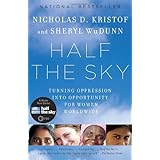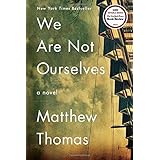
(Available at Powells.com and elsewhere)
I add books to my "Books Wanted" list and sometimes don't read them until years later. Of course, I could easily solve this by using my library card. I haven't done that yet here in Seattle, despite my lack of space and the wonderful Central Branch that's not far from me.
Devil Sent the Rain: Music and Writing in Desperate America came out in 2011 and I bought it used from Powell's a few weeks ago. I'm glad I did, because if I'd gotten it from the library, I'd have had to repeatedly restrain myself from scribbling in the margins and underlining passages (my copy is defaced beyond reselling now, even if I didn't plan to keep it forever).
Tom Piazza's writing is the kind that moves me the most - passionate, well-reasoned yet unapologetically feisty, full of wondrous passages - the kind of book I know I'll revisit, if not use as reference. My blog title is taken from the intro, in which Piazza briefly addresses the argument as to whether or not the written word is "doomed." Piazza says it's not and never will be: "In the private space shared by the writer and the reader, one individual soul encounters another and a spell is cast, created by both of them." The spell worked powerfully in this case.
Part One consists of essays on music, quite a few of which first appeared in the Oxford American (no surprise that it's my favorite magazine). "True Adventures with the King of Bluegrass" details a crazy few days spent with Jimmy Martin. I was so captivated by these escapades (and awed by Piazza's patience) that reading this was like watching a piqaresque film. My ignorance of Martin's music didn't affect my enjoyment of the essay, and he's now first on the list of musicians whose music I want to hear.
Carl Perkins is next. It's reprehensible that I'm not familiar with his music and only know it from Beatles covers - he was one of their idols, and I knew that. One of the reasons I bought the book was to learn, and learn I did. (After reading the essay, I pulled up a few U-Tube videos where Perkins plays with George Harrison and others - great voice and presence.) I'm sure Piazza would forgive my ignorance knowing he's incited enough interest for me to want to discover these musicians. He's a fellow explorer - one of his essays is an absorbing one about visiting a flea market. After hours of fruitlessly perusing boxes of 78s, he hits the jackpot. The literal blues he felt earlier in the day disappears and he excitedly returns to his ever-patient wife, who's been sitting outside reading the newspaper for hours. (The love and understanding between the two of them is a quiet melody underlying this essay).
I have many books on Dylan, many albums and CD's, have seen him perform several times (most memorably, with Patti Smith), love his music and have long considered him a genius. Did I gain new insights from Piazza? Yes, and a strong desire to get my hands on the DVD The Other Side of the Mirror: Bob Dylan Live at the Newport Folk Festival, 1963-1965 (the booklet notes were written by Piazza and are reprinted in this volume).
Piazza is a resident of New Orleans. Many of the pieces in Part Two deal with issues and feelings raised by Hurricane Katrina and the political and psychological havoc during and after the storm. His love for the city's music, culture, and people pervade each of these essays. These pieces are the author's way of questioning "whether there was an opposing magic to counteract the enormous undertow of all that imagery, all that appeal to easy, comforting answers" that appeared in the national dialogue post-9/11. As a resident, Piazza has an insider's view and understanding of the city (he was also a writer on HBO's Treme) and knows the vital importance of giving evacuees the choice of returning and rebuilding their lives in ways that will work for them and aren't dictated by politicians and duplicitous outsiders. Reprinted here is a telling exchange between the author and an affluent evacuee who wrote in response to Piazza's book on New Orleans (book info below). Priceless. Amazing how Piazza remained respectful as he bit back.
One of the joys of my life is discovering an author, new to me, that connects so strongly that I immediately want to read more of his/her work. Why New Orleans Matters is now at the top of my Books Wanted list. I admire Piazza's knowledge, his courage, his writing talent, his empathy, his honesty and his insight. Again, from Piazza's intro: "words, direct from one mind to another mind, will be there to stretch the strings taut between the private consciousness and the public drama and play a tune, or a symphony. " Meeting Tom Piazza's work was tune and symphony both.
In 1997, shortly after Dylan released Time Out of Mind, he was chosen to be a Kennedy Center honoree, along with Lauren Bacall and others. Each honoree invites someone of their choice to write an encomium for inclusion in the program. Dylan chose Piazza. Need I say more?


 and
and 